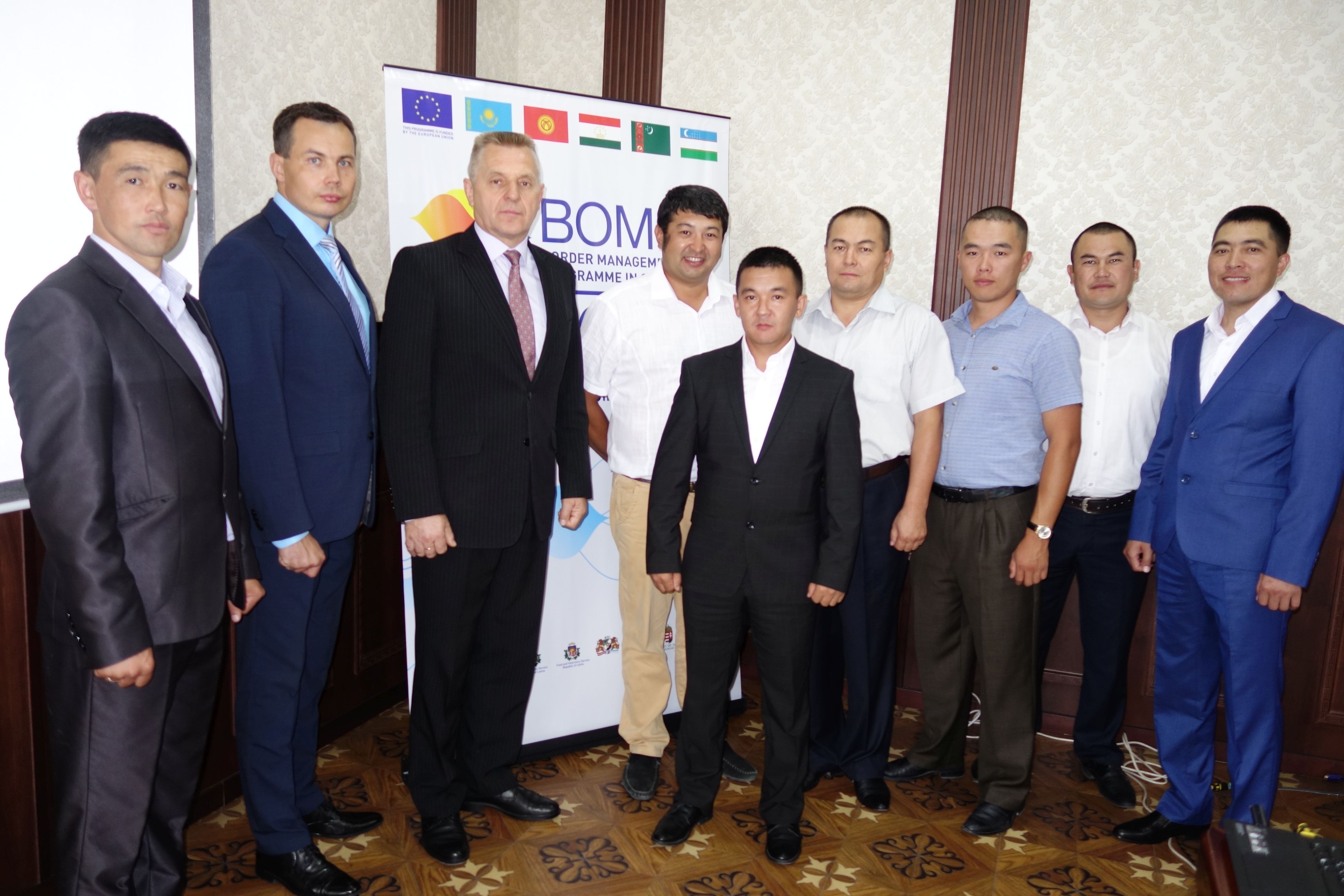Taking into the account the constant necessity for the regulation of transport and migrant flows, as well as the trans-border nature of security challenges for border territories in Central Asia, an effective border regime should not be considered as an internal issue of just one country, as it requires a close partnership between the border delegates of all countries involved. Thus these delegates also have a crucial role in the maintenance of good-neighbourly relations and cooperation between the countries.
A workshop for border delegates and their representatives at the border with Kazakhstan was held on September 6–8 in Bishkek. It was led by Latvian border experts and gathered officials from the State Border Service of the Kyrgyz Republic. The following topics were discussed: 1) good practices in border cooperation, 2) organisation of the Border Delegate Institution, 3) the duties and functions of border delegates, 4) the mechanisms of cooperation and 5) the exchange of information between Kyrgyzstan and neighbouring countries. In addition, some tools and examples were introduced from the European experience that can be adapted to local conditions and used by Kyrgyzstan authorities. The main goals of this BOMCA activity were to contribute to the modernisation of “Local Border Traffic Regimes” in Central Asia and to facilitate the adaptation of appropriate EU examples of cooperation between local communities, local authorities and law enforcement agencies at the borders of Central Asia.
National border delegates presented in detail their functions and role in ensuring good-neighbourly relations and cooperation between the countries, in strengthening cooperation between border agencies, in ensuring adherence to laws at the borders, and managing incidents and routine issues at the borders. The European experts, who are Latvian border guards working at the border with the Russian Federation and Belarus, presented their European experience, enhanced by practical examples. The participants discussed the existing forms of cross-border cooperation, including the challenges and principles of such cooperation. An analysis of existing agreements was also conducted, and the basic principles and differences in their application were jointly discussed. Based on the workshop’s findings, experts will prepare recommendations for further development of the local border traffic regime and cooperation between the border representatives of Kyrgyzstan and neighbouring countries.

